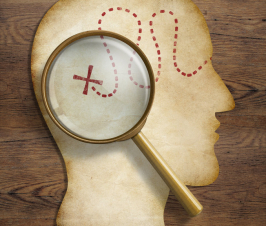The presence of dreaming during rapid-eye-movement (REM) sleep indicates that memory formation may occur during this sleep stage. But now, researchers from Japan have found that activity in a specific group of neurons is necessary for memory consolidation during REM sleep.
Researchers from Japan found that activity in a specific group of neurons is necessary for memory consolidation during REM sleep
In a study published this month in Neuron, researchers from University of Tsukuba and the University of Tokyo have revealed that adult-born neurons (ABNs) in the hippocampus, which is a brain region associated with memory, are responsible for memory consolidation during REM sleep.
Neurogenesis, the process by which new neurons are formed, takes place in the hippocampus throughout the lifespan of animals, including humans. At present, little is known about the contribution of ABNs to memory formation during sleep, something the researchers at University of Tsukuba and the University of Tokyo aimed to address.
“Although ABNs in the dentate gyrus region of the hippocampus are rare and not frequently active, they show heightened plasticity, indicating their potential role in the formation of memories,” says lead author of the study Associate Professor Masanori Sakaguchi. “We wanted to investigate how manipulating ABN activity would affect memory consolidation in freely behaving mice.”
To do this, the researchers exposed mice to a context-specific fear memory task. Then, they recorded activity in specific ABNs across the learning, consolidation, and retrieval stages of memory.
“We found that young ABNs that were most active during REM sleep after the memory task were most likely to have been active during learning,” explains Professor Masashi Yanagisawa, the other senior author of the study. “Further, when we then examined the effects of optogenetic silencing on young ABN activity during sleep, we found that the consolidation of contextual fear memories was impaired.”
Data represents causal evidence that activity in young ABNs during REM sleep is necessary for memory consolidation
Their data represents causal evidence that activity in young ABNs during REM sleep is necessary for memory consolidation. This is an important development as the activity and role of ABNs in memory consolidation during sleep was previously unknown, as was the type of hippocampal neuron responsible for memory consolidation during sleep.
“During learning, specific ABNs may undergo synaptic changes that enable memory consolidation. Further, these synaptic changes may depend on synchronization between specific ABNs and brain oscillations that take place during REM sleep,” says Professor Sakaguchi.
Clarification of these possibilities may lead to a deeper understanding of how memories are formed, retrieved, and consolidated, and could facilitate the development of new treatments for memory disorders.
1. Deependra Kumar, Iyo Koyanagi, Alvaro Carrier-Ruiz, Pablo Vergara, Sakthivel Srinivasan, Yuki Sugaya, Masatoshi Kasuya, Tzong-Shiue Yu, Kaspar E. Vogt, Masafumi Muratani, Takaaki Ohnishi, Sima Singh, Catia M. Teixeira, Yoan Chérasse, Toshie Naoi, Szu-Han Wang, Pimpimon Nondhalee, Boran A.H. Osman, Naoko Kaneko, Kazunobu Sawamoto, Steven G. Kernie, Takeshi Sakurai, Thomas J. McHugh, Masanobu Kano, Masashi Yanagisawa, Masanori Sakaguchi. Sparse Activity of Hippocampal Adult-Born Neurons during REM Sleep Is Necessary for Memory Consolidation. Neuron, 2020; DOI: 10.1016/j.neuron.2020.05.008

Razi Berry is the founder and publisher of the journal Naturopathic Doctor News & Review, which has been in print since 2005, and the premier consumer-faced website of naturopathic medicine, NaturalPath. She is the host of The Love is Medicine Project docuseries, The Natural Cancer Prevention Summit, The Heart Revolution-Heal, Empower and Follow Your Heart, and the popular 10-week Sugar Free Summer program. From a near death experience as a young girl that healed her failing heart, to later overcoming infertility and chronic fatigue syndrome and fibromyalgia through naturopathic medicine, Razi has lived the mind/body healing paradigm. Her projects uniquely capture the tradition and philosophy of naturopathy: The healing power of nature, the vital life force in every living thing and the undeniable role that science and mind/body medicine have in creating health and overcoming dis-ease. You can follow Razi on social media: Facebook at Razi Berry, Instagram at Razi.Berry and join the Love is Medicine group to explore the convergence of love and health. Look for more, and listen to more Love is Medicine podcast episodes here.

















